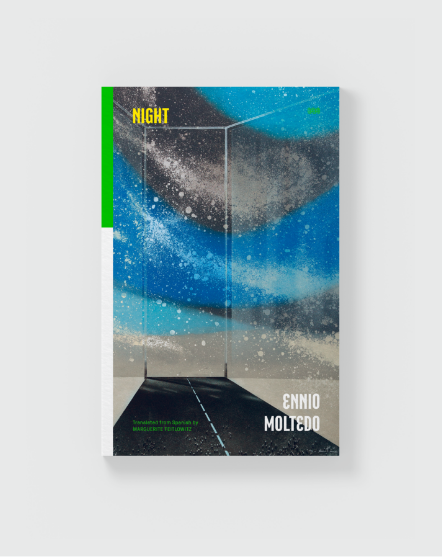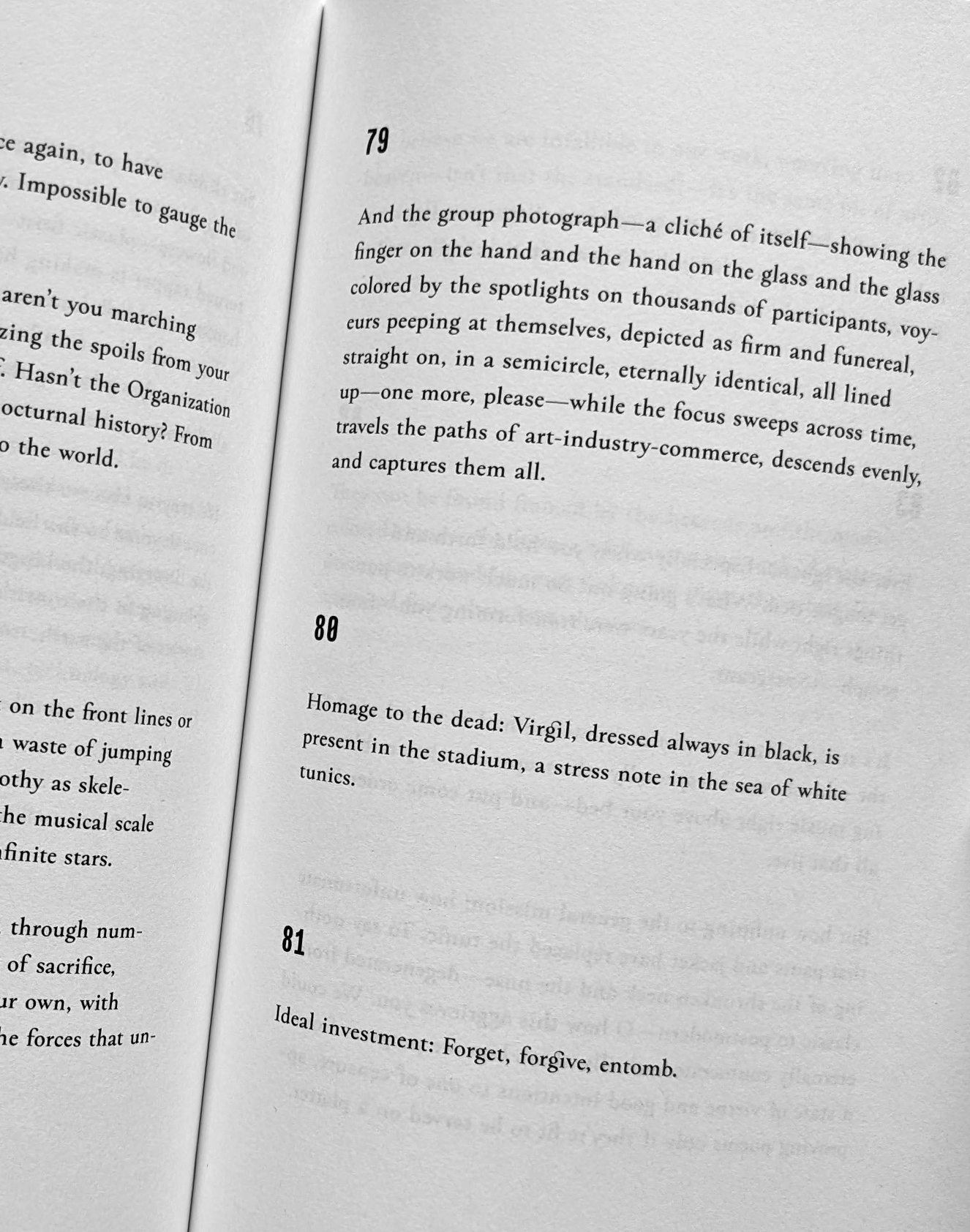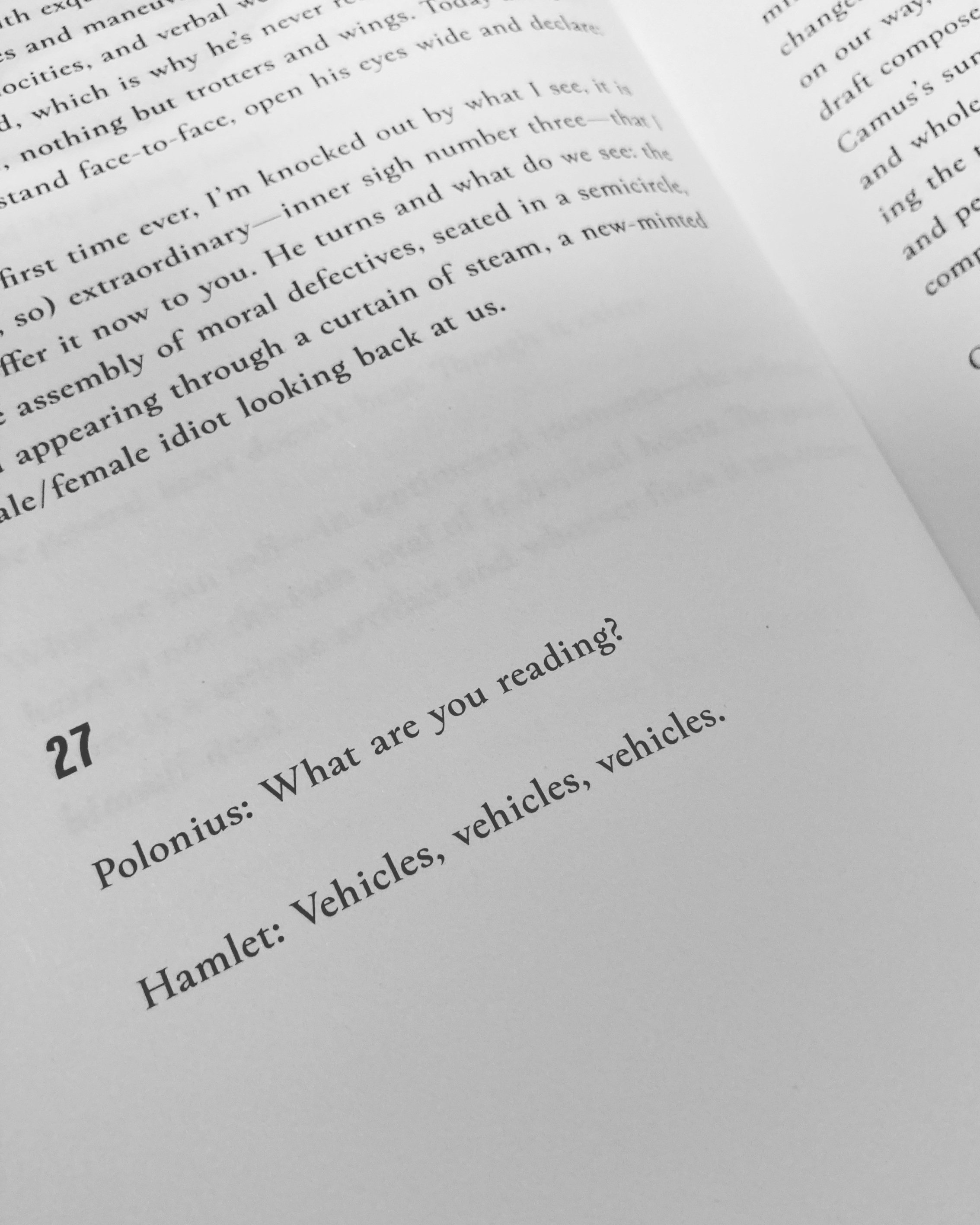ENNIO MOLTEDO - NIGHT
Ennio Moltedo
Night
Translated from Spanish by
MARGUERITE FEITLOWITZ
$20.00
104 pages
November 15, 2022
ISBN 978-0-9992613-6-1
Distributed by Asterism (US) and Turnaround Publisher Services (UK & EU)
BIOS
ENNIO MOLTEDO (1931–2012) spent his life in the small Chilean coastal cities of Valparaíso and Viña del Mar. Born to Genoese immigrants, he is a poet of the New World Mediterranean: inspired, chastened, and challenged by the ancients, and in conversation with his contemporaries, including Huidobro, Girondo, Neruda, and de Rokha. A revered “poet’s poet,” he published eight individual collections of poetry, as well as an anthology of Romanian poetry co-translated with Neruda, and a chronicle of Neruda’s life (Neruda: poeta del cerro Florida). Longtime director of the University of Valparaíso Press, Moltedo also wrote criticism, journalism, and text for books of visual art and cartoons.
MARGUERITE FEITLOWITZ won an NEA Translation Fellowship for Night. She’s also translated Liliane Atlan, Griselda Gambaro, Salvador Novo, and Luisa Valenzuela. She is the author of the internationally acclaimed A Lexicon of Terror: Argentina and the Legacies of Torture. Her honors include two Fulbrights, and Radcliffe’s Bunting Fellowship. Her writing on literature, art, and human rights has appeared internationally. She teaches at Bennington College, where she founded and directs the program in literary and humanitarian translation.
Ennio Moltedo
Night
Translated from Spanish by
MARGUERITE FEITLOWITZ
Written during the Pinochet dictatorship but not published until democracy’s return, Ennio Moltedo’s Night is a masterpiece of controlled rage, mourning, resistance, and astonishing humor, and the first of his books to appear in English translation.
Ennio Moltedo (1931-2012), whom Raúl Zurita called “one of the finest, greatest, most curious and honorable poets of Chile,” is at once lyrical and political, a dramatist, a chronicler, and a critic. Night is a Kafkaesque chronicle of the Pinochet era in prose poems that encompass the lyric, mini-drama, mini-epic, and micro-fiction, and which Esther Allen has called “surreal, agonized documents.”
“How much longer?’ asks Night, will we endure the ‘well-dressed deplorables… The living dead brilliantly girded for power—on the escalator going up—lights, camera, fanfare—how much longer?’ Written in response to the 17-year dictatorship of Augusto Pinochet in Chile, and translated by Marguerite Feitlowitz for our present moment in the United States, Moltedo’s prose poems are surreal, agonized documents that merge historical fact with, in Feitlowitz’s words, ‘exquisitely controlled rage.’” —Esther Allen
“Ennio Moltedo, translated now for the first time by the daring mind of Marguerite Feitlowitz, conveys the Chilean night in all its linguistic, political, and cultural meanings: darkness, affliction, and absence of ethics or reason: the enduring wounds of Chile’s dictatorship. In Night we see how land and military are irrevocably intertwined: ‘If you put your ear to the naked earth, you will precisely hear the murderers’ names.’ And indeed, these same murderers, or, ‘authorities,’ ask the people to ‘renew their relationship with the sea,’ the sea which the narrator has been dumped into. ‘Let’s search for a bit of truth amid towers of corpses,’ writes Moltedo. In this quest for clarity amid darkness, Moltedo’s poems reverberate with the force of a language writing its way out of the psychological shackles of the state.” —Daniel Borzutzky
“Moltedo’s Night asks us to never stop striving for freedom, for our own Paradise, no matter how much the night seems eternal.” —Peter Valente, Heavy Feather Review
“Moltedo's particular version of rage becomes a poetics of a subtle, searing concision. It hints at an omnipresent inside joke shared with the reader--an awful and cruel one, but one so absurd that you have to laugh at it to survive it.” —Coco Fitterman, Tripwire
BIOS
ENNIO MOLTEDO (1931–2012) spent his life in the small Chilean coastal cities of Valparaíso and Viña del Mar. Born to Genoese immigrants, he is a poet of the New World Mediterranean: inspired, chastened, and challenged by the ancients, and in conversation with his contemporaries, including Huidobro, Girondo, Neruda, and de Rokha. A revered “poet’s poet,” he published eight individual collections of poetry, as well as an anthology of Romanian poetry co-translated with Neruda, and a chronicle of Neruda’s life (Neruda: poeta del cerro Florida). Longtime director of the University of Valparaíso Press, Moltedo also wrote criticism, journalism, and text for books of visual art and cartoons.
MARGUERITE FEITLOWITZ won an NEA Translation Fellowship for Night. She’s also translated Liliane Atlan, Griselda Gambaro, Salvador Novo, and Luisa Valenzuela. She is the author of the internationally acclaimed A Lexicon of Terror: Argentina and the Legacies of Torture. Her honors include two Fulbrights, and Radcliffe’s Bunting Fellowship. Her writing on literature, art, and human rights has appeared internationally. She teaches at Bennington College, where she founded and directs the program in literary and humanitarian translation.
PRESS
Reviewed by Coco Fitterman for Tripwire
Reviewed by Peter Valente for Heavy Feather Review















